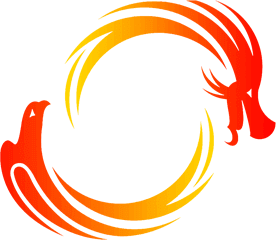


Sports
Equestrian
Equestrian
Equestrianism means riding or driving horses. In sports there are various disciplines, Dressage, Racing, and Jumping.
These can be both individual and team events. Dressage is where the purpose is to develop the horse and rider, through standardized progressive course demonstrating the horses training.
At the peak of a dressage horse's gymnastic development, it can smoothly respond to a skilled rider's minimal aids by performing the requested movement while remaining relaxed and appearing effortless.
The performance is judged by a panel and given a mark out of ten. The horse and rider with the highest mark wins.
Horse racing is a sport which engages speed; the objective is for the jockey (the horse rider) to ride the as fast as possible around a course which may have obstacles.
The jockey and horse who crosses the finish line first is the winner. Horse Jumping or show jumping is Competitive riding of horses through an obstacle course.
Horses run the course one at a time, and the winner is judged according to jumping ability and speed. The horse is considered as much an athlete as the human rider.
Equestrian sport has been incorporated into the Asian Games since 1982.
List of disciplines
- Dressage
- Endurance
- Equestrian
- Eventing
- Jumping
- Tent Pegging
Dressage tests take place in a 60m x 20m ‘all-weather’ (sand-based) arena. Two competitions run at the same time - the Team medals are decided in one round and the Individual medals over three rounds. In each round the riders have to perform a Dressage Test, made up of a series of movements to be performed by the horse.
The movements are set in a compulsory order for the first two rounds but, for the third and final round, the rider chooses what he or she will show the judges, and the programme is set to music.
Horse and rider are marked by five judges who will be looking for accuracy of movement, calmness, suppleness and flexibility.
List of events
-
mixed
-
INDIVIDUAL
-
TEAM
-
Endurance riding is an extremely strenuous form of horse racing, requiring the horse to complete, at the top levels, for up to 100 miles. Winning riders complete these 100-mile rides in 10-12 hours. Any breed can compete, but Arabians generally dominate the top levels because of their incredible stamina and natural endurance.
Riders must have a great knowledge of pace and know when to slow down or speed up during the ride. They must also have knowledge of their horse's condition and watch for signs of tiring.
In some countries, the winner is determined by a combination of speed and the recovery rate of the horse. In other countries, no places are given and awards are presented to any horse and rider that achieved a required standard.
List of events
-
mixed
-
INDIVIDUAL
-
TEAM
-
The history of Equestrian sport dates back over 2,000 years, to when the Greeks introduced Dressage training to prepare their horses for war. It continued to develop as a military exercise through the Middle Ages, with the Three Day Event - which includes Dressage, Cross Country and Show Jumping tests - designed to reflect the range of challenges horses faced in the army. In its modern form, Equestrian owes much to its inclusion in the Olympic Games, which led to the creation of the Fédération Equestre Internationale (FEI) in 1921. Through its development of international competitions, the FEI has helped to spread the popularity of horse sport outside its traditional army base. Equestrian was an Asian Games event 1982 in New Delhi, India.
List of events
-
mixed
-
Eventing Team
-
-
standard
-
Eventing Individual
-
The Eventing competition (formerly called the Three Day Event) takes place over four days. Days One and Two are Dressage, Day Three is Cross Country and Day four is Jumping. The Dressage and Jumping phases are similar to the pure Dressage and Jumping competitions. In the Cross Country event, riders have to complete a course over natural terrain of between 6270m and 7410m.
The course contains solid obstacles that test the nerve, boldness, scope and partnership of horse and rider; faults are awarded for run-outs, exceeding the specified time limit and falls of either horse or rider.
The rider with the fewest penalties at the end of the competition is the winner, with the Team Medals decided by the best three scores from each nation.
List of events
-
mixed
-
INDIVIDUAL
-
TEAM
-
Jumping (known as ‘Show Jumping’ in the United Kingdom) takes place in an arena, around a course of approximately 15 fences. Jumping courses are now highly technical, requiring boldness, scope, power, accuracy and control from both horse and rider.
The fences are designed so that if the horse hits them as they jump them, part or all of the fence will knock down and the rider will be penalised with ‘faults’.
Faults are also awarded if the rider does not complete the course within a set time. The winner is the rider with the fewest faults; if there is a tie, the result is decided by jumping a shortened course as fast as possible without knocking fences down (“against the clock”).
The Team medal is decided over three rounds by four riders and the Individual medals over five rounds.
List of events
-
mixed
-
TEAM
-
INDIVIDUAL
-
Tent Pegging is one of the most popular equestrian sports and was particularly popular in the Indian sub-continent till the post war period. Although there is difference of opinion as to how and where it started, it is almost certain that tent pegging is a sport of Asian Origin. One source dates it back to the invasion of India by Alexander the Great in 326 B.C. which lends credence to the belief that the sport originated in the North Western province of India and Afghanistan through where Alexander had entered India.
The cavalry soldiers of Alexander were believed to have used Tent Pegging as a battle tactics against the elephants in the army of the Indian King Porus, who fought bravely against the invaders, lost the battle, but by virtue of his heroic demeanour, charmed Alexander, who returned to Porus his kingdom and made him his friend.
There is also a belief that the sport originated with the horse-mounted soldiers charging enemy camps at the crack of dawn removing the pegs which held the tents in place, with the tips of their sharp spear.
The sport got its first official recognition when the Olympic Council of Asia accepted Tent Pegging as an official event in the 1982 New Delhi Asian Games.
List of events
-
mixed
-
INDIVIDUAL LANCE
-
TEAM LANCE
-
INDIVIDUAL SWORD
-
TEAM SWORD
-
INDIVIDUAL LANCE (RINGS & PEGS)
-
INDIVIDUAL SWORD (LEMONS & PEGS)
-
PAIRS FILE (LANCE)
-
INDIAN FILE (SWORD)
-
Related links
Sports Committee
The Sports Committee consist of one Chairman and a minimum of five members. The Chairman, nominated by his NOC, will be elected by the GA, while the Members preferably representing the 5 zones of t...
Sports and Environment Committee
The Sports and Environment Committee consist of One Chairman and Five Members. The Chairman, nominated by his NOC, will be elected by the GA, while the Members preferably representing the 5 zones o...
Sports for All Committee
The Sports for All Committee shall consist of One Chairman and Five Members. The Chairman, nominated by his NOC, will be elected by the GA, while the Members preferably representing the 5 zones of ...
Sports Federations
-

Asian Federation
Asian Equestrian Federation
-

International Federation
International Equestrian Federation




